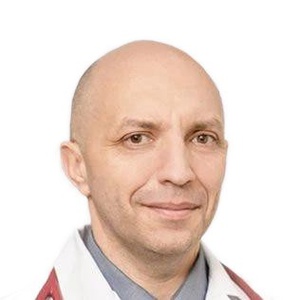Arrhythmia
Heart arrhythmia is a disruption of the normal rhythm of contractions, in which the frequency, regularity, or strength of heartbeats deviate from physiological norms. The electrical conductivity of the heart muscle ensures precise coordination, and any failures in this process can cause serious irregularities in the heart's function. This condition may occur without symptoms or be accompanied by pronounced manifestations.
Types of Rhythm Disorders
There are several types of heart rhythm disorders:
-
Tachycardia — accelerated rhythm (over 100 beats per minute);
-
Bradycardia — slow contractions (less than 60 beats per minute);
-
Extrasystole — premature contractions;
-
Atrial fibrillation — chaotic myocardial activity;
-
Sinus form — frequency disruption with preserved normal rhythm.
-
Pacemaker migration — shifting of the impulse source within the atria, leading to unstable heart rates.
Each type requires an individual approach to diagnosis and treatment.
Causes of Disorders
Rhythm deviations may occur for the following reasons:
Genetic Factors
Hereditary mutations affecting the function of the heart's ion channels provoke electrical activity failures, which can lead to contraction pathologies.
Among other factors:
-
Ischemia and cardiomyopathies;
-
Inflammatory processes;
-
Hormonal imbalances;
-
Side effects of medications;
-
Stress, smoking, excessive caffeine use.
Identifying the cause is key to successful restoration of heart function.
Symptoms
Manifestations depend on the type and severity of the disorder. Possible symptoms include:
-
Irregular heart activity;
-
Accelerated or slowed heartbeat;
-
Dizziness;
-
Shortness of breath;
-
Fainting and blurred vision;
-
Weakness and reduced stamina.
Even isolated incidents require medical consultation.
Diagnosis
To establish a diagnosis, the following are used:
-
ECG and daily monitoring;
-
Heart ultrasound;
-
Stress tests;
-
Electrophysiological examination.
Diagnosis allows identification of the type and cause of the deviation.
Treatment
The choice of treatment depends on the type of disorder, symptoms, and patient condition. The approach may be medicinal, device-based, or surgical.
Drug Therapy
Antiarrhythmics, beta-blockers, medications for blood pressure control, and thrombosis prevention are used. Selection is individualized.
Non-drug Approaches
These include:
-
Pacemaker implantation;
-
Radiofrequency ablation;
-
Lifestyle control, elimination of bad habits.
These methods reduce symptoms and normalize rhythm.
Surgical Intervention
In severe cases, implantation of defibrillators or open-heart surgery is indicated. This is the most radical yet effective method of rhythm restoration.
Possible Complications
Without treatment, the following may occur:
-
Stroke;
-
Chronic heart failure;
-
Cardiac arrest;
-
Loss of consciousness and injuries;
-
Reduced quality of life.
Timely intervention prevents severe consequences.
Prevention
To reduce the risk, one should:
-
Control blood pressure;
-
Avoid alcohol and smoking;
-
Reduce stress levels;
-
Maintain a healthy weight and diet;
-
Regularly check heart function.
Simple measures can preserve stable rhythm for years.
Factors That Aggravate Arrhythmia
One must not:
-
Ignore doctor’s prescriptions;
-
Take medications without specialist approval;
-
Physically overload the body;
-
Use stimulants;
-
Live in constant stress.
Following recommendations helps maintain control of the condition.
Prevalence
Rhythm disorders are diagnosed in 10–15% of adults, especially common after the age of 60. This is due to the natural wear of heart tissue, increased vulnerability to chronic diseases, and stress.
Why It Is Dangerous
Disruption of contraction frequency and regularity can lead to reduced circulatory efficiency and tissue oxygen deprivation. Particularly dangerous are types that lead to clot formation and cardiac arrest.
Manifestation
Course of arrhythmia may be:
-
Constant;
-
Paroxysmal;
-
Asymptomatic (diagnosed by chance).
Some forms do not require intervention; others demand urgent care.
Treatment of Heart Arrhythmia in Russia
Modern clinics in Russia successfully manage this disorder thanks to the use of the latest methods and equipment. Treatment of heart arrhythmia in Russia is conducted according to international standards and with high effectiveness.
Clinics
Heart arrhythmia treatment in Russia is available both in federal scientific centers and in private clinics. Patients are offered accurate diagnostics, therapy selection, and advanced procedures including ablation and pacemaker installation.
Among the leading medical institutions:
- EMC (European Medical Center) — specializes in complex rhythm disorders. Cardiologists perform electrophysiological studies, catheter ablations, and device implantation.
- MEDSI Clinic — offers a full treatment cycle: from consultations to surgeries. Modern imaging methods, personalized therapy selection, and a multidisciplinary approach are applied.
- Scandinavia Clinic — treats arrhythmias in both inpatient and outpatient settings. Minimally invasive procedures, continuous monitoring, and rehabilitation are available.
Cost
Approximate prices:
-
Consultation: from $20;
-
ECG and monitoring: from $30;
-
Radiofrequency ablation: from $1150;
-
Pacemaker implantation: from $1800.
MARUS Assistance
The MARUS platform helps you choose a clinic for heart arrhythmia treatment in Russia, schedule a doctor’s appointment, receive an online consultation, and undergo diagnostics. We cooperate with trusted medical centers and support the patient at every stage — from request to recovery.
Gastroenterology
Cosmetology
Plastic Surgery
Ophthalmology
Care Assistants
All information on this website is provided for informational purposes only and does not constitute medical advice. All medical procedures require prior consultation with a licensed physician. Treatment outcomes may vary depending on individual characteristics. We do not guarantee any specific results. Always consult a medical professional before making any healthcare decisions.
Doctors
Choose the package that suits you best — from selecting the right doctor and clinic to full trip and treatment organization
MARUS support options
Choose a package that works for you — from choosing your doctor to full-service travel and treatment
Send a request
You choose the clinic — we’ll take care of travel and treatment arrangements and all the paperwork.

